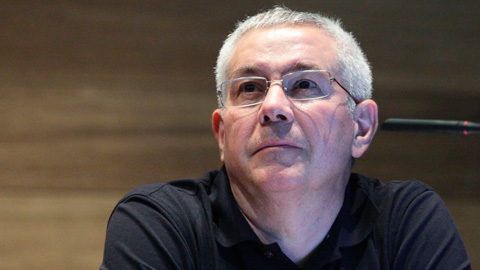A UAB anthropology project recognized by the Fundamentos BBVA program
José Luis Molina, professor of Anthropology at the UAB, is part of the multidisciplinary team awarded with the help of the Foundations Program of the BBVA Foundation in the Social Sciences section for the project "Mapping Cultural Diversity through Personal Networks", which will study cultural diversity from personal networks on a global scale.

The project aims to analyze cultural diversity in a sample of countries based on the "signatures" or "footprints" that cultural institutions (nationality, ethnicity, language, religion, etc.) leave on the structures of relationships that surround individuals (how they are organized and what these relationships are like with family and friendships). Together with José Luis Molina, professor of the Department of Social and Cultural Anthropology of the UAB, it will also be carried out by Anxo Sánchez, professor of Applied Mathematics of the UC3M (coordinator) and Christopher McCarty, professor of the Department of Anthropology of the University from Florida.
The Research Group in Fundamental and Oriented Anthropology (GRAFO), coordinated by José Luis Molina, has shown in its studies that it is possible to predict cultural traits, such as country of origin and religion, by examining the structural characteristics of personal networks of immigrants in the USA and Spain. These characteristics can be considered samples of the social structures in which individuals are immersed. The patterns or "cultural signatures" indicate the existence of an underlying sociocultural continuity that has not been well understood until now.
In this framework, the project addresses the challenge of conceptualizing cultural diversity worldwide from a structural perspective while establishing a bridge between culture and structure and looking for a new global concept. To achieve this goal, reviewing the availability of data and the tools required to measure both dimensions adequately is necessary.
The researchers will collect personal networks through cross-cultural studies and social media to compare the results with information available in the most critical cultural diversity files, such as the Human Relations Area Files. This enormous volume of data will make it possible to study the existing variation and identify the mechanisms that would explain this interdependence between cultures and relational structures.
"This approach tries to overcome the classic dualism in anthropology and social sciences between culture and social structure to propose a new theoretical concept that integrates both dimensions of human life, such as cultural institutions and social organization. The expected results will allow cultural diversity to be conceived from a completely new perspective, based on the traces it leaves in the social structure, and thus be able to propose new questions about the regularities and divergences observed", José Luis Molina.
The team of physicists and mathematicians from the U3CM will identify relational patterns likely to be associated with cultural areas from a large amount of data. For their part, the UAB and University of Florida team will investigate the continuity and change historically documented in these areas and propose a theoretical framework capable of integrating the results.
The project, which will last three years and has obtained funding of €600,000, represents an excellent opportunity to take up a fundamental topic for anthropology and tackle it with an ambitious combination of ideas, technologies and interdisciplinary teams, the researchers emphasize.